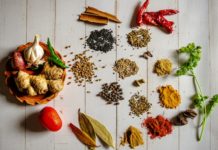Carbohydrates are the staple diet of ultramarathoners, but you should also take into account the fat and protein content of your food. The slower pace of ultramarathons allows for slower digestion and absorption of food, so you should limit your carbohydrate intake to 60g per hour or less. In addition, high-carbohydrate diets can cause stomach cramps. Also, your body will crave savoury food after a while, so it’s important to include some savoury food. Fat is also beneficial, as it provides more calories per gram than carbohydrate, and therefore reduces the weight of your pack.
Carbs are king
Carbs are essential for fueling your body during an ultra marathon. But the key to carbohydrate intake is ensuring that you take the right kind and quantity. You also want to avoid carbohydrates that are high in fat and fiber as these can cause gastrointestinal problems. In general, research supports the recommendation of consuming about one gram of carbohydrates per kilogram of body weight per hour.
Vegetables are nutrient-dense
Eating vegetables is one of the best ways to get the vitamins and minerals your body needs for ultra-marathon training. Vegetables are the highest nutrient-dense foods on Earth, and ultra-marathoners need a lot of them. In fact, a nutrient deficiency can severely hamper your training and running performance. You should also limit refined carbohydrates and added sugar. Too much of them can cause weight gain, inflammation, and other negative effects on your health.
Sports gels are easy to digest
Sports gels are one of the easiest ways to consume carbohydrates during an ultra marathon. They contain a high percentage of carbohydrates, which helps to replenish your body’s glycogen stores. Without proper carbohydrates, you’ll experience a range of side effects including fatigue, poor performance, poor recovery, and even sickness. Sports gels contain a high concentration of simple sugars, which are quickly absorbed. They’re popular with endurance athletes, and are often much easier to digest than other snacks.
Energy chews are nutrient-dense
Energy chews are a popular choice for runners, but they’re not the only food for ultras. Other nutrient-dense foods include dried dates and raisins. Dates are natural sugars that are easily digested. Medjool dates are particularly juicy, and a single one has about 130 calories and 35 grams of carbohydrates. They also contain potassium, a key electrolyte.
Savoury snacks are nutrient-dense
Post-race snacks are crucial for refuelling the muscles and replenishing body fluids and electrolytes. A post-run snack should include both carbohydrates and protein. It should be consumed within 15 minutes to one hour after the event. It is also important to consider the portion size of snacks. During a marathon, an athlete’s appetite may be diminished so savoury snacks may be more appealing.
Caffeine can support endurance sports performance
Researchers have found that caffeine can enhance the performance of endurance athletes. Specifically, caffeine has been shown to reduce pain perception and force sensation during exercise. It also reduces ratings of perceived exertion. All of these effects result in improved endurance sports performance. These benefits are especially evident in athletes who are tired. To date, most studies have been done in lab settings or in tightly controlled trials.




